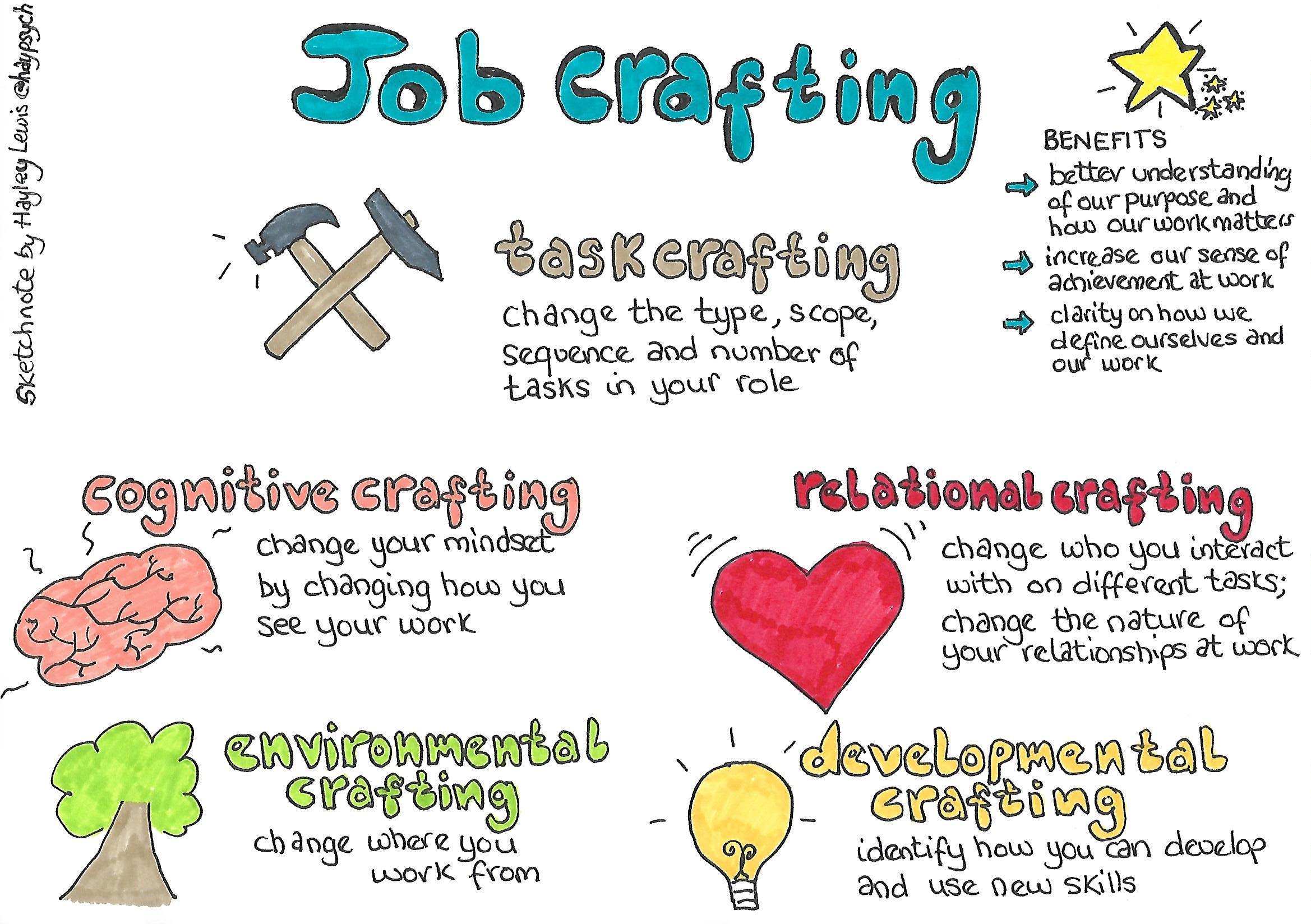6 minute read
One of the mistakes I see some managers make, when talking about a team member’s under performance, is to make it personal. They might make personal comments about the person, suggesting they are lazy and deliberately under performing.
In my own experience as a line manager I very rarely found that someone deliberately set out to do their worst and under perform. There was always a reason. And my role as a psychologist means I’m always curious about the root cause of someone’s poor performance. While it can be harder work, the pay off in identifying and dealing with the root cause can be greater than just dealing with the symptom. It also means anything you’ve put in place is more likely to stick.
Here are six questions to help you identify root case of someone’s poor performance:
1. Is the root cause to do with a lack of job satisfaction?
This sometimes is the case where a job and the responsibilities and tasks of the job have changed, perhaps due to a restructure. The job that someone signed up for might have changed to such an extent that it no longer satisfies them. Therefore, their under performance might be due to feeling dissatisfied and subsequently, demotivated.
An approach that can help is job crafting. Developed by Amy Wrzesniewski and Jane E Dutton, job crafting involves the physical and mental changes individuals can make in the task or relationship aspects of their work. This can help the person define the content and meaning of what they do, along with clarifying who they are at work, i.e. their identity. There are various ways to job craft including:
- Task crafting, such as altering number of work tasks and/or the way they do them.
- Relational crafting, such as changing who or how we interact with certain people interpersonal interactions at work)
- Cognitive crafting, such as changing how we think about our job.
- Developmental crafting, such as working on new skills to help with our job.
- Environmental crafting, such as changing where we do our job.

2. Is the root cause to do with a lack of job security?
Living in fear that your job is not secure does not lend itself to great performance. And with the cost of living crisis being experienced in the UK and other countries, the psychological impact of job insecurity becomes even more acute.
While corporate downsizing and redundancies may be out of your hands, there are things you can do as a line manager. For example, a 2018 study looked at the impact of the 2008/9 financial crash on more than 5000 people, in Ireland. In particular, the researchers examined the impact of consultation during change. Around half of the participants had been through a restructure, and almost 60% had been affected by downsizing and lost their jobs. The researchers found that good consultation played an important part in helping people offset the negative effects of change. The more detailed and helpful the consultation, the less dissatisfied and exhausted and more motivated people seemed to be.
3. Is the root cause to do with job demands?
An unrealistic number of demands combined with insufficient support and resources creates an environment where most people struggle to do their best work. According to the UK Health and Safety Executive (HSE) there are six common stressors in the workplace, one of which is job demands. The HSE demands can include unrealistic workload, unhealthy work patterns, a toxic work environment, and the mental/physical demands of a job.

A model I teach managers about is the Job Demands Resource Model (the JDRM), which can be a useful way to think about and mitigate the demands of a job. Developed by Professor Arnold Bakker and colleagues, the JDRM suggests that work strain is a response to an imbalance between demands on an individual and the resources they have available to deal with those demands.
Imagine a set of scales, with job demands at one end and job resources at the other. Job demands include risks and hazards, physical and mental demands, complexity of the job, decision making and relationships. Job resources include the level of knowledge and experience a person has, the amount of autonomy they have as to how they do their work, how supportive the environment is, and the amount of useful and constructive feedback they get.
When there aren’t sufficient resources to offset the demands, we feel too much strain and we are less likely to feel our best or do our best work. Find out if the resources balance out the demands of the job a person is experiencing.
4. Is the root cause to do with a lack of confidence and/or self-esteem?
A 2015 study suggests that there are two major factors which seem to impact confidence. One is stress and the second, is a person’s general anxiety. The researchers suggest that stress can raise or lower an individual’s confidence depending on their predisposition to anxiety. Therefore, it’s important you understand as much about the person you’re managing as possible. If they are of an anxious disposition and are already feeling stressed, which could be impacting their performance, how you handle things could make things better or worse.
If you manage someone you suspect of having low self-confidence then it’s important you think carefully about the type of feedback you give and how you give it. Research by Professor Brooke Gazdag and Rebecca L. Badawy suggests people who have a deep sense that their reputations are not justified by their achievements may suffer from impostor syndrome. In this instance, negative feedback can lead to a real drop in performance and subsequently self-esteem. This was particularly the case for men in the participant group.
5. Is the root cause to do with a lack of capability and/or competence?
This is another common root cause when a job has changed for some reason. There might be a new process, or new legislation, or new responsibilities requiring new skills. Its key, therefore, that you do a skills audit to ascertain what skills someone has and where their gaps might be. Once the skills gap is identified, the relevant support, such as training or coaching, can be put in place.
And if your team member does need to develop knowledge or skill in a particular area, it’s really important you give them time and space to actively think about things as they learn. For example, in a study led by Giada di Stefano, participants were asked to take time to pause and reflect while trying to tackle a problem. They found people were better at the task after being asked to take a moment to reflect on which strategies were working for them. This was also replicated in a call centre environment, where employees who took the time to pause and reflect did 23 percent better on a post-training test.
Therefore, make sure to give time in 1-2-1 discussions for your team member to talk to you about how they’re applying their new learning. It gets them thinking deeper, anchors the learning and it shows you’re interested.
6. Is the root cause to do with their relationship with you, their line manager?
Yes, that’s right. You could be the root cause of their under performance.
A 2005 study suggests that many managers make their mind up about their team members and remain fixed in that initial assessment. The researchers found that many of the managers in the the study did not believe in personal change. They simply judged team members as competent or not at the start of their management tenure and that assessment remained, regardless of evidence to the contrary.
Empathic concern might make the difference but only if you’re distributing this fairly across your team. In a study of more than 100 employees and 22 supervisors in an American hospital, those leaders who displayed empathic concern were more likely to have staff who help each other and put extra effort in to their work. However, this was only the case when there was little difference in relationships between the leader and each team member. In other words, those leaders who treated people broadly the same (whilst respecting them as individuals) tended to have better levels of team co-operation and individual effort.
And that empathy and compassion starts with you and how you treat yourself. We know that managers who are less likely to be self-compassionate and who are unhealthy self-critics are likely to be less compassionate and overly critical of their team members. Maladaptive Perfectionism developed by Jennifer Grzegorek and colleagues is where a person has extremely high standards and are always beating themselves or others up for any perceived imperfection. This can cause high anxiety over mistakes and can be a reason for micromanagement. Before you have the performance conversation with the person, ask yourself if you are being reasonable in your expectations.
STUDY REFERENCES
Badawy, R. L., et al. (2018). Are all impostors created equal? Exploring gender differences in the impostor phenomenon-performance link. Personality and Individual Differences, 131, 156-163.
Bakker, A. B., & Demerouti, E. (2007). The Job Demands-Resources model: State of the art. Journal of Managerial Psychology, 22, 309-328.
Goette, L., et al. (2015). Stress pulls us apart: anxiety leads to differences in competitive confidence under stress. Psychoneuroendocrinology, 54, 115-23.
Grzegorek, J. L., Slaney, R. B., Franze, S., & Rice, K. G. (2004). Self-criticism, dependency, self-esteem, and grade point average satisfaction among clusters of perfectionists and non-perfectionists. Journal of Counseling Psychology, 51, 192–200.
Harney, B., Fu, N., & Freeney, Y. (2018). Balancing tensions: Buffering the impact of organisational restructuring and downsizing on employee well-being. Human Resource Management Journal, 28, 235-254.
Haynie, J. J., et al. (2019). When caring leaders are constrained: The impact of LMX differentiation on leader empathic concern in predicting discretionary work behaviors. Journal of Leadership & Organizational Studies, 26, 5-17.
Heslin, P. A., Latham, G. P., & VandeWalle, D. (2005). The effect of implicit person theory on performance appraisals. Journal of Applied Psychology, 90, 842–856.
di Stefano, G., et al. (2014). Learning by thinking: How reflection aids performance. Harvard Business School Working Paper, 14-093, March.
Did you find this post helpful? I’d love to know, so Tweet me, or drop me a note on LinkedIn. If you have any colleagues that you feel should read this, too, please share it with them. I’d really appreciate it.
I also have a monthly newsletter which is a compilation of blog posts, helpful research, and reviews of books and podcasts – all aimed at helping managers and leaders become more confident in handling a range of workplace issues. You can subscribe here -> SUBSCRIBE
If you liked this post, you might also like these:
12 things you need to understand if you want your team to perform consistently well
10 things to discuss during performance appraisal
The performance-attitude balance: 6 ways to manage your rock stars


One comment